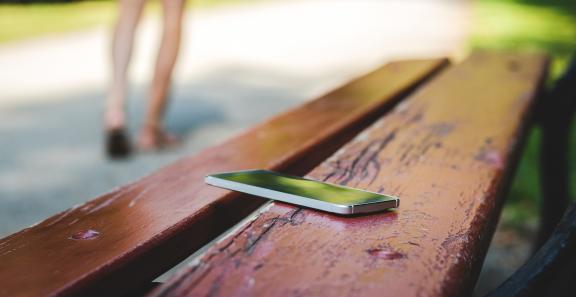Minimizing the Risks of a Lost Phone

Posted: June 27 2019
If you’ve ever lost your phone or had it stolen, you know the feeling of panic that comes with it. Your phone can hold and access just about anything and everything from your daily life (memories with family and friends, where and when you’re supposed to be at any given time, medical and bank information). As such, it’s important to do your best to protect your personal information in the event that something like this happens.
Lock Your Phone
Using a password to get into your phone is great starting place to protect all of your important information. If you’re able, instead of using a simple password (short numbers or a pattern), use a strong one (longer with letters and numbers). Many phones are also able to use biometrics (fingerprints or facial scanning) to lock your phone. However you choose to lock your phone, it’s a good idea to set it to automatically lock when you’re not using it.
Secure Your Data
Securing your phone’s data goes beyond just setting up a password. It’s a good idea to not allow your phone to automatically remember logins and passwords. If you have trouble remembering a bunch of different ones, you might want to consider using a password manager to securely store them for you. You might also want to encrypt your phone.